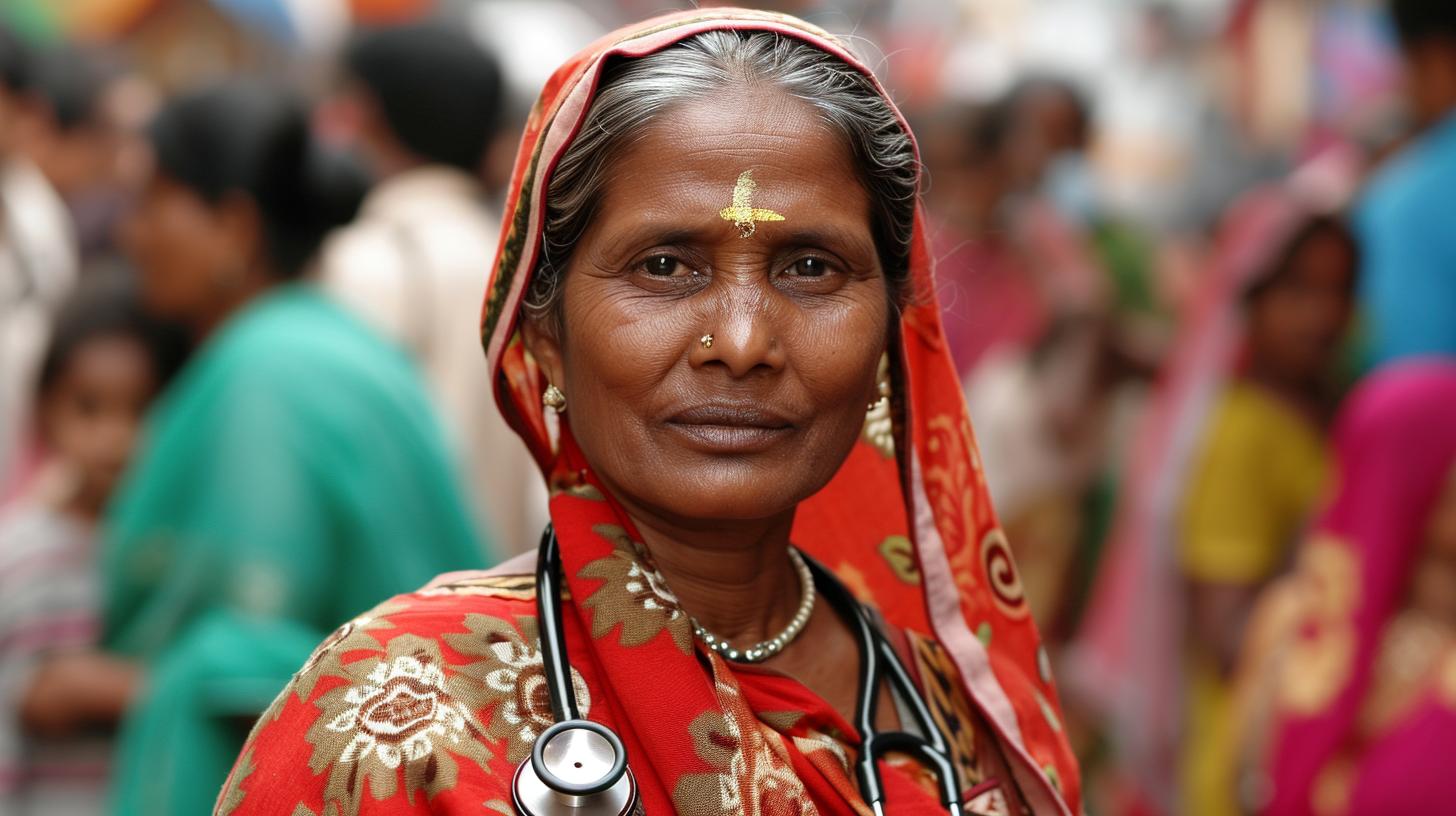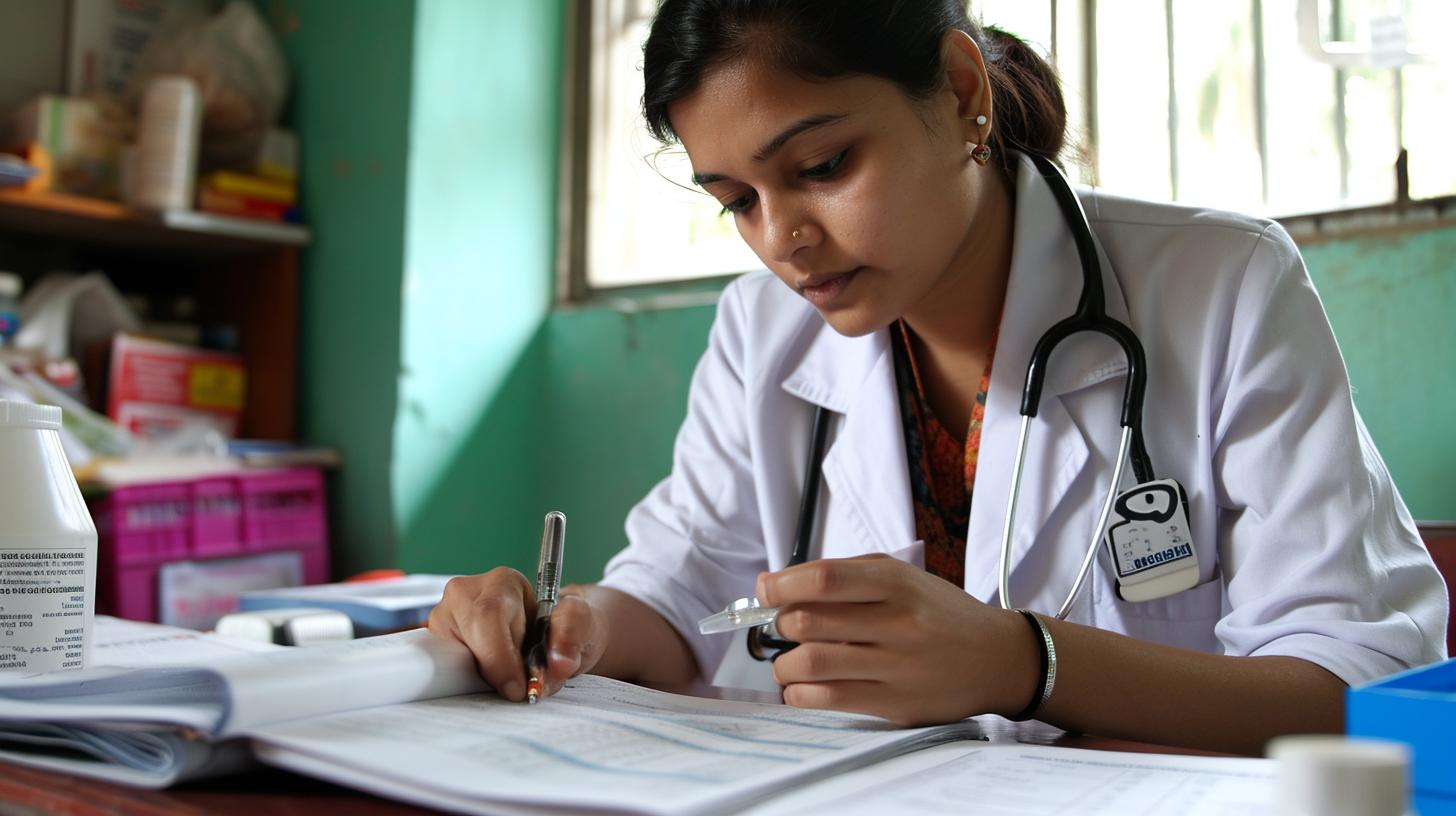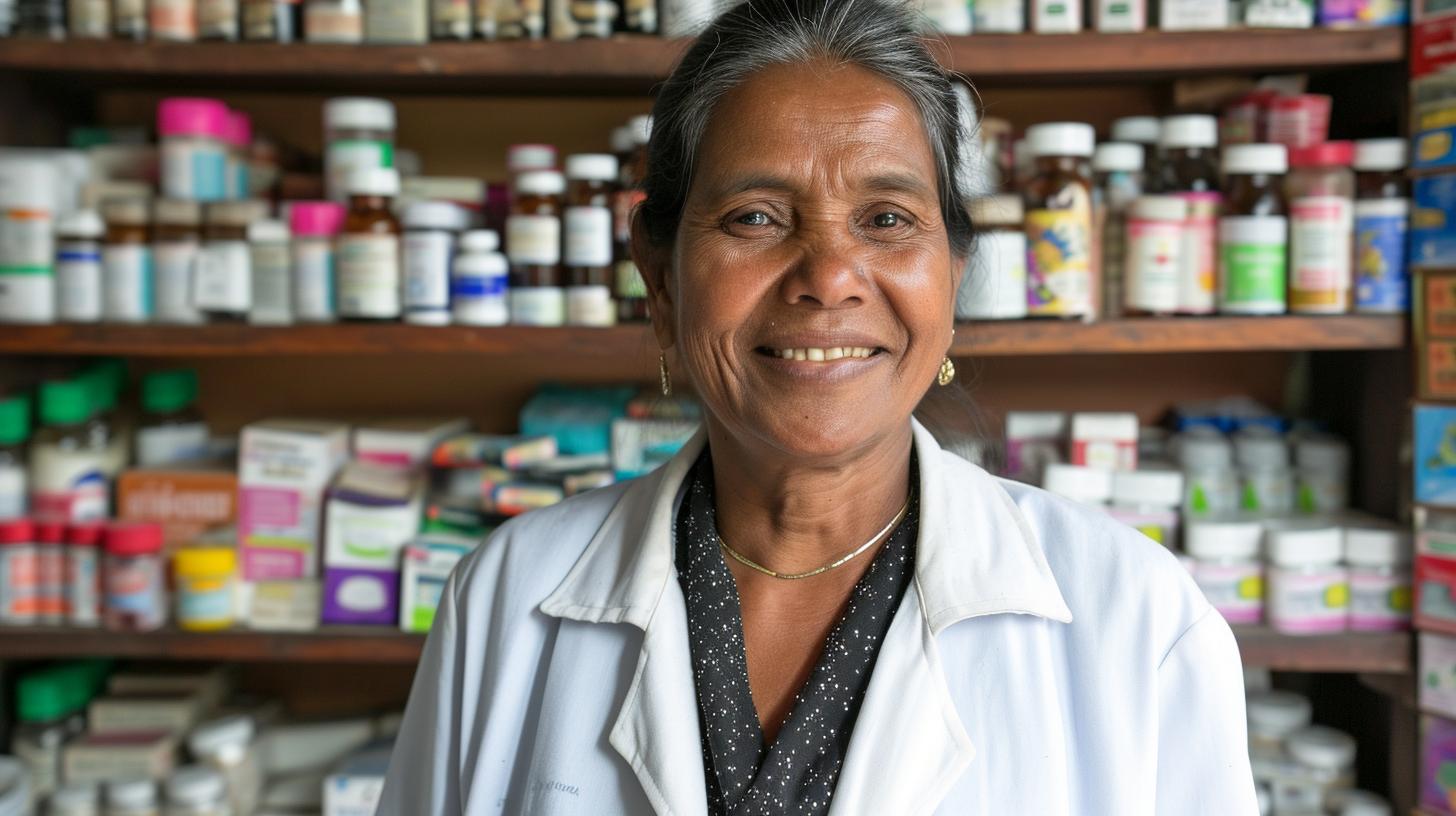
Female health workers play a crucial role in the healthcare industry, with their contributions extending beyond just delivering medical care. In this article, we will explore the significance of female health workers and their impact on promoting women’s health, maternal and child health, and community health promotion. We will also delve into the challenges they face in the healthcare industry and discuss the opportunities for empowerment, advancements, and recognition.
Female health workers are essential in addressing the unique healthcare needs of women and girls. Their role goes beyond clinical duties to encompass advocacy, activism, and education within communities. We will examine how their presence not only ensures access to crucial healthcare services but also contributes to the overall well-being of individuals and communities.
Despite the invaluable contributions of female health workers, there are numerous challenges they encounter in their professional roles. From gender-based discrimination to limited career advancement opportunities, these obstacles can significantly impact their effectiveness in delivering care. This article will shed light on these challenges and explore strategies for empowering and supporting female health workers in their pursuit of excellence in healthcare.
The Role of Female Health Workers in Promoting Women’s Health
Female health workers play a crucial role in promoting women’s health, working tirelessly to address the unique healthcare needs of women and girls. Their roles encompass a wide range of responsibilities, from providing direct patient care to advocating for women’s health rights and leading community education initiatives. Below are some key aspects of their role in promoting women’s health:
- Providing comprehensive reproductive healthcare services
- Advocating for women’s reproductive rights and access to contraception
- Educating women on sexual and reproductive health, including family planning and prenatal care
In addition to addressing reproductive health concerns, female health workers also focus on other significant aspects of women’s overall wellbeing:
- Offering support and guidance for maternal health before, during, and after childbirth
- Empowering women through education and information on nutrition, hygiene, and preventive care
- Promoting screenings for breast and cervical cancer, as well as vaccinations against HPV
Despite the vital contributions of female health workers in advancing women’s health, they continue to face challenges that hinder their efforts. From cultural stigmas surrounding certain healthcare issues to gender-based discrimination in the workplace, female health workers persist in overcoming obstacles to improve the lives of women in their communities. Nonetheless, their dedication remains unwavering as they work towards creating a healthier future for all.
Challenges Faced by Female Health Workers in the Healthcare Industry
Female health workers play a crucial role in the healthcare industry, especially when it comes to addressing the specific needs of women. However, they also face numerous challenges in their line of work, which can impact their ability to provide effective care and support.
Gender Discrimination and Bias
One of the major challenges faced by female health workers is gender discrimination and bias within the healthcare industry. Despite being an essential part of the workforce, female health workers often encounter unequal treatment, lower pay compared to their male counterparts, and limited opportunities for career advancement. This discrimination can lead to feelings of frustration and demotivation among female health workers, ultimately affecting their performance and delivery of care.
Work-Life Balance
Female health workers often struggle with maintaining a healthy work-life balance due to the demanding nature of their profession. Many juggle long working hours with family responsibilities, leaving them exhausted and stressed. The lack of support systems in place to help them manage these competing demands can take a toll on their well-being and overall job satisfaction.
Safety Concerns
Safety concerns are another significant challenge faced by female health workers. They are at higher risk of experiencing workplace violence, harassment, and assault, especially in clinical settings or when working in communities with high crime rates. This not only affects their physical safety but also has a detrimental impact on their mental health and emotional well-being.
Addressing these challenges is crucial to ensure that female health workers can continue to provide quality care and support for women’s health. Efforts must be made to promote gender equality within the healthcare industry, improve work-life balance policies, and enhance safety measures for these dedicated professionals. By creating a supportive environment for female health workers, we can maximize their potential and positively impact women’s health outcomes.
The Impact of Female Health Workers in Maternal and Child Health
Female health workers play a crucial role in improving maternal and child health outcomes. Their impact in this area is significant, as they are often the primary caregivers and providers of healthcare services to pregnant women, mothers, and children in many communities around the world. Here are some key ways in which female health workers contribute to maternal and child health:
- Providing prenatal care: Female health workers play a vital role in ensuring that pregnant women have access to essential prenatal care. This includes monitoring the mother’s health, providing education on nutrition and healthy habits during pregnancy, and identifying any potential risk factors that may affect the pregnancy.
- Assisting with childbirth: In many settings, female health workers are present during childbirth to provide assistance and support to expectant mothers. They may also be trained in basic obstetric care to handle emergencies and complications during labor.
- Delivering postnatal care: After childbirth, female health workers continue to play an important role in providing postnatal care for both the mother and the newborn. They offer guidance on breastfeeding, newborn care, and monitor the mother’s recovery after delivery.
Despite their invaluable contributions, female health workers face various challenges when it comes to improving maternal and child health. These challenges include limited access to resources, lack of training opportunities, cultural barriers that restrict their ability to deliver certain services, and gender-based discrimination within healthcare settings.

It is crucial for initiatives aimed at improving maternal and child health to address these challenges and provide support for female health workers so that they can continue making a positive impact in their communities.
Empowering Female Health Workers
The role of female health workers is crucial in promoting the overall health and well-being of communities, especially when it comes to addressing the specific needs of women. In order to effectively carry out their responsibilities, it is vital to empower these female health workers through proper training and education.
Specialized Training Programs
One of the key ways to empower female health workers is by providing them with specialized training programs that focus on women’s health issues. These programs can include comprehensive courses on maternal and child health, family planning, reproductive health, and gender-based violence. By equipping these female health workers with the necessary knowledge and skills specific to women’s health, they are better prepared to address the unique challenges women face within their communities.
Continuing Education Opportunities
In addition to initial training programs, ongoing continuing education opportunities are essential for empowering female health workers. As healthcare practices and technologies continue to evolve, it is important for these workers to stay updated on the latest advancements in women’s healthcare. By providing access to workshops, seminars, and online resources, female health workers can continue to strengthen their expertise and stay informed about new developments in the field.
Mentorship and Support
Empowering female health workers also involves offering mentorship and support systems. Establishing mentorship programs where experienced professionals provide guidance and advice can greatly benefit the professional development of female health workers. Additionally, creating support networks within healthcare organizations can offer a space for these workers to share experiences, seek advice, and foster a sense of community within their profession.
By focusing on empowering female health workers through training and education, we can ensure that they are well-equipped to positively impact women’s health within their communities. This investment in their development ultimately benefits not only the individual worker but also contributes to improved healthcare outcomes for women at large.
Female Health Workers and Community Health Promotion
Female health workers play a crucial role in promoting community health by providing essential healthcare services, education, and support to individuals and families. They serve as frontline workers, reaching out to communities to address various health concerns, including preventive care, maternal and child health, infectious diseases, nutrition, and sanitation.
One of the key responsibilities of female health workers in community health promotion is to educate community members on healthy practices and preventive measures. They often conduct workshops, seminars, and one-on-one sessions to raise awareness about important health issues. By empowering individuals with knowledge and skills for disease prevention and management, female health workers contribute significantly to the overall well-being of communities.

In addition to education, female health workers also play a vital role in providing healthcare services directly within communities. These services may include basic medical care, immunizations, prenatal care, family planning support, and more. Their presence within the community helps bridge the gap between formal healthcare facilities and underserved populations.
Furthermore, female health workers are often culturally sensitive and understand the unique needs of the communities they serve. This allows for better communication and trust-building with community members, ultimately leading to improved health outcomes.
| Role | Importance |
|---|---|
| Educating community members on healthy practices | Empowering individuals with knowledge for disease prevention |
| Providing healthcare services directly within communities | Bridging the gap between formal healthcare facilities and underserved populations |
| Building trust through cultural sensitivity | Leading to improved health outcomes within communities |
The Advocacy and Activism of Female Health Workers
One of the key aspects of the advocacy and activism of female health workers is their efforts to combat gender-based violence and discrimination in healthcare settings. Many female health workers advocate for policies and programs that address gender-based violence, such as domestic abuse, sexual harassment, and harmful traditional practices. They work tirelessly to create safe spaces for women to seek healthcare without fear of judgment or mistreatment.
In addition to their advocacy efforts, female health workers often engage in activism to promote equitable access to healthcare for all members of the community. This may involve organizing community outreach programs, providing culturally sensitive care, and advocating for policies that prioritize the needs of marginalized groups. Their activism not only improves access to healthcare but also helps to address social determinants of health that disproportionately affect women and children.
By advocating for women’s rights and engaging in activism at both the grassroots and policy levels, female health workers are making significant strides towards achieving gender equality in healthcare. Their dedication has led to tangible improvements in women’s health outcomes and has helped create more inclusive and empowering healthcare systems.
| Female Health Workers Advocacy | Impact |
|---|---|
| Combatting gender-based violence | Creating safe spaces for vulnerable women |
| Promoting equitable access | Addressing social determinants of health |
The Future of Female Health Workers
With advancements in technology and medical research, female health workers have the opportunity to enhance their skills and expertise through continued education and training programs. This allows them to stay abreast of the latest developments in healthcare and provide high-quality care to their patients. Furthermore, there are increasing opportunities for leadership roles and career advancement within the healthcare industry, allowing female health workers to take on greater responsibilities and influence the direction of healthcare delivery.
In addition, there is a growing recognition of the importance of diversity in the healthcare workforce, including the representation of female health workers in leadership positions. Efforts to promote gender equality and diversity in healthcare settings create a more inclusive environment that values the unique perspectives and contributions of female health workers.
This not only benefits individual practitioners but also leads to improved patient outcomes and overall healthcare quality. Overall, the future holds great promise for female health workers as they continue to play a crucial role in shaping the trajectory of healthcare delivery.
Celebrating the Contributions of Female Health Workers
Female health workers play a crucial role in the healthcare industry, especially in promoting women’s health and maternal and child health. Their dedication and hard work have made a significant impact on the well-being of communities around the world. Despite facing various challenges, female health workers continue to advocate for better healthcare, empower their communities, and drive positive change.
One of the most remarkable contributions of female health workers is their impact on maternal and child health. Their knowledge, compassion, and commitment have led to improved access to quality care for mothers and children, ultimately saving lives and promoting healthy outcomes. These success stories serve as a testament to the invaluable role that female health workers play in safeguarding the health of women and children.
It is essential to honor and recognize the accomplishments of female health workers. Their tireless efforts not only contribute to individual patient care but also extend to community health promotion.
By empowering female health workers through training, education, advocacy, and activism, we can further enhance their capabilities and amplify their impact on healthcare. It is crucial to celebrate the contributions of female health workers and provide them with the support they need to continue making a difference in the lives of countless individuals.






